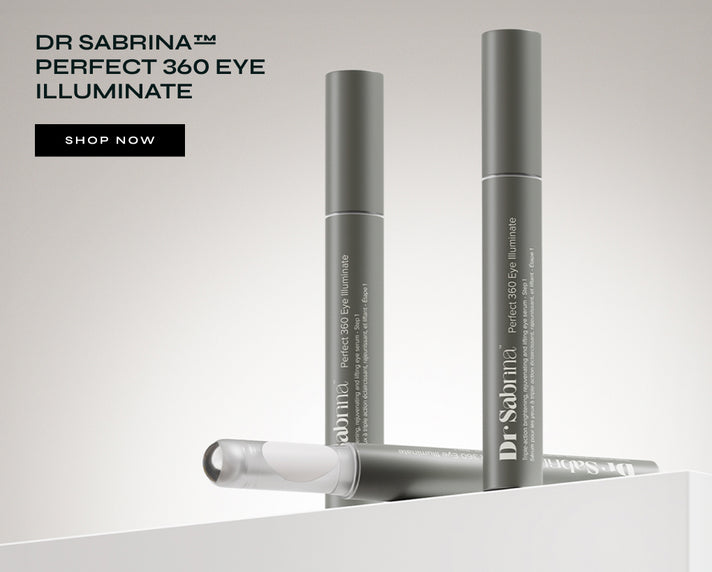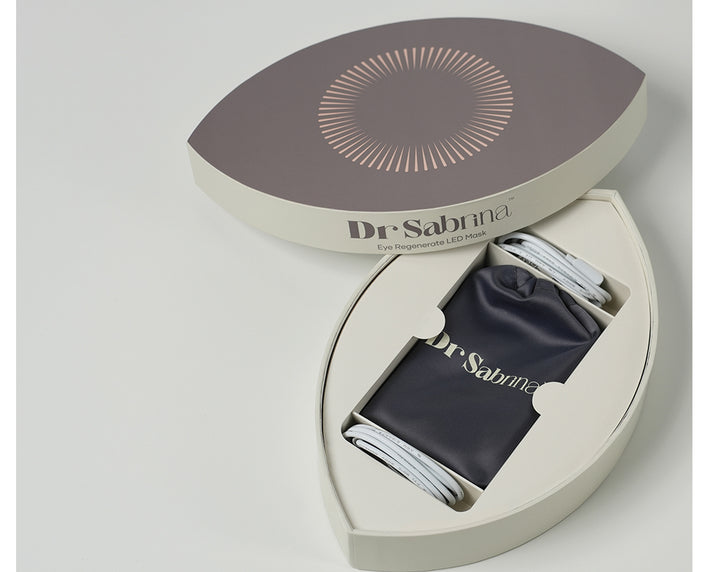LED Eye Patches
Best Skin Care Routine For Your 50s

Ageing is a natural process, but that doesn’t mean your skin can’t glow at every stage of life. Your 50s bring about changes like reduced collagen production, dryness, and fine lines, but with the best skin care routine for 50s, you can maintain radiant, youthful skin.
This guide will walk you through a dermatologist recommended skin care routine for 50s, ensuring hydration, nourishment, and a healthy glow.
Step-by-Step Skincare Routine for Glowing Skin
- Gentle Cleansing
- Exfoliation
- Hydration and Moisturisation
- Sun Protection
- Targeted Treatments
- Eye Care
Follow this simple yet effective skincare routine to keep your skin hydrated, radiant, and youthful in your 50s.
1. Gentle Cleansing
Cleansing is the base of any good skin care routine. As skin matures, it becomes more delicate and prone to dryness, so using a gentle, hydrating cleanser is essential. Look for cream, oil-based, or gel cleansers enriched with antioxidants like vitamin E, green tea, or chamomile to soothe and protect the skin. Avoid harsh foaming cleansers or soaps, as they can strip away natural oils, leaving the skin feeling tight and dehydrated.
Morning:
Use a mild cleanser to refresh and remove overnight sweat and skincare residue.
Evening:
Double cleanse—start with a cleansing balm or oil to dissolve makeup and sunscreen, followed by a hydrating cleanser to remove any remaining impurities.
span>Wash your face with lukewarm water instead of hot water to prevent excessive dryness.
2. Exfoliation
Exfoliation removes dead skin cells, promotes cell renewal, and enhances the natural glow of your skin. However, as skin matures, it becomes more sensitive, so harsh physical scrubs should be avoided. Instead, opt for gentle chemical exfoliants that dissolve dead skin cells without causing irritation.
- AHAs (Alpha Hydroxy Acids) like Glycollic or Lactic Acid: Help brighten skin, improve texture, and reduce fine lines.
- Enzyme-based exfoliants (papaya or pineapple enzymes): A milder option for sensitive skin.
- BHA (Beta Hydroxy Acid like Salicylic Acid): Useful if you have clogged pores or occasional breakouts.
- Exfoliate 2-3 times a week to maintain a smooth, radiant complexion without over-drying the skin. This is an essential part of any best skin care routine for 50s.
3. Hydration and Moisturisation
With age, the skin’s natural moisture levels decrease, leading to dryness, tightness, and fine lines. A combination of hydrating serums and rich moisturisers can restore hydration and maintain a plump, youthful look.
Hyaluronic Acid: Attracts and retains moisture, making skin look fresh and dewy.
Glycerin & Aloe Vera: Provide deep hydration and soothe irritation.
Ceramides & Fatty Acids: Strengthen the skin’s barrier to prevent moisture loss.
Best Routine:
- Morning: Use a lightweight, hydrating serum followed by a rich moisturiser.
- Evening: Opt for a thicker, nourishing cream to deeply hydrate overnight.
Apply your moisturiser while your skin is still slightly damp to lock in hydration. A dermatologist recommended skin care routine for 50s always includes deep hydration.
For a deep hydration boost, try incorporating a face mask before or after shower into your routine to lock in moisture and refresh your skin.
4. Sun Protection
One of the most crucial steps in any skincare routine for 50s! UV rays are the number one cause of premature ageing, leading to wrinkles, sagging, and hyperpigmentation. Using a broad-spectrum SPF 30 or higher daily (even indoors) can protect your skin from further damage.
Mineral Sunscreens (Zinc Oxide, Titanium Dioxide): Great for sensitive skin and provide immediate protection.
Chemical Sunscreens: Absorb UV rays but may not be suitable for sensitive skin.
Antioxidant-Infused SPF: Offers added protection against free radicals.
Apply sunscreen every morning, even on cloudy days. Reapply every 2-3 hours when outdoors. Use a moisturising sunscreen to combine hydration and sun protection in one step!
5. Targeted Treatments
Your skin in your 50s may need extra support to address concerns like wrinkles, dullness, and loss of firmness. Incorporating active ingredients into your best skin care routine can help improve overall skin health.
Retinol (Vitamin A):
- Boosts collagen production.
- Reduces fine lines and improves skin texture.
- Should be used at night and followed by a moisturiser.
Vitamin C:
- Brightens dull skin and evens out skin tone.
- Fights free radicals that cause premature ageing.
- Best used in the morning under sunscreen.
Niacinamide (Vitamin B3):
- Improves elasticity and minimises fine lines.
- Reduces redness and strengthens the skin barrier.
- Works well with other ingredients like hyaluronic acid and peptides.
Start using retinol 2-3 times a week and increase gradually to avoid irritation.
6. Eye Care
The skin around the eyes is thinner and more prone to wrinkles, puffiness, and dark circles. A targeted eye cream can help keep this area hydrated and youthful.
- Hyaluronic Acid & Peptides: Plump fine lines and improve elasticity.
- Caffeine: Reduces puffiness and dark circles.
- Vitamin C & Retinol: Brighten and smooth out fine lines.
Best Routine:
- Apply a pea-sized amount of eye cream using your ring finger (gentlest touch).
- Use a patting motion instead of rubbing to avoid stretching the skin.
Store your eye cream in the fridge for an extra cooling effect to reduce puffiness. If under-eye puffiness is a concern, consider using red light for eye bags to help reduce swelling and improve circulation.
Lifestyle Habits for Glowing Skin
Your skincare routine works best when combined with healthy lifestyle habits:
1. Stay Hydrated: Drink at least 8 glasses of water daily.
2. Eat Skin-Friendly Foods: Include omega-3-rich foods (salmon, walnuts), leafy greens, and berries.
3. Get Enough Sleep: 7-9 hours of rest allows skin to repair overnight.
4. Exercise Regularly: Improves circulation and promotes a natural glow.
5. Manage Stress: High stress levels can cause breakouts and dullness. Try yoga or meditation.
6. Use a Silk Pillowcase: Reduces friction on the skin, preventing wrinkles and moisture loss.
7. Limit Alcohol & Caffeine: These can dehydrate the skin, making it appear dull and tired.
8. Take Collagen Supplements: Supports skin elasticity and hydration from within.
9. Practice Facial Massage: Stimulates circulation, reduces puffiness, and enhances skin’s natural glow.
10. Avoid Smoking: Smoking accelerates ageing by breaking down collagen and reducing oxygen flow to the skin.
11. Apply a Humidifier at Night: Keeps your skin hydrated, especially in dry climates or during winter.
12. Double Cleanse at Night: Removes makeup and impurities, preventing clogged pores and dull skin.
13. Manage Hormonal Changes: Consult a doctor about skincare adjustments if menopause is affecting your skin.
Conclusion
Ageing is inevitable, but dull skin isn’t. With the right skincare routine tailored for your 50s, you can maintain hydrated, glowing, and youthful skin. Focus on hydration, gentle exfoliation, sun protection, and nourishing ingredients to keep your skin radiant. For an extra skincare boost, explore LED eye patches online to help refresh and rejuvenate tired eyes with advanced light therapy.
FAQs
1. What is the best skincare routine for 50s?
The best skincare routine for 50s includes gentle cleansing, exfoliation, deep hydration, sun protection, and targeted treatments like retinol and vitamin C to maintain youthful, glowing skin.
2. How often should I exfoliate in my 50s?
A dermatologist-recommended skin care routine for 50s suggests exfoliating 2-3 times a week with mild AHAs or enzyme-based exfoliants to promote cell renewal without irritation.
3. What type of sunscreen is best for mature skin?
A broad-spectrum SPF 30+ mineral sunscreen with hydrating ingredients is ideal for a good skin care routine to protect against sun damage and premature aging.
4. Can I still use retinol in my 50s?
Yes! Retinol is a key part of a skincare routine for 50s as it boosts collagen, smooths fine lines, and improves skin texture. Start with a lower concentration and gradually increase usage.
5. How can I keep my skin hydrated as I age?
Incorporate hyaluronic acid, ceramides, and glycerin into your best skin care routine to maintain moisture levels. Drinking plenty of water and using a humidifier can also help.









